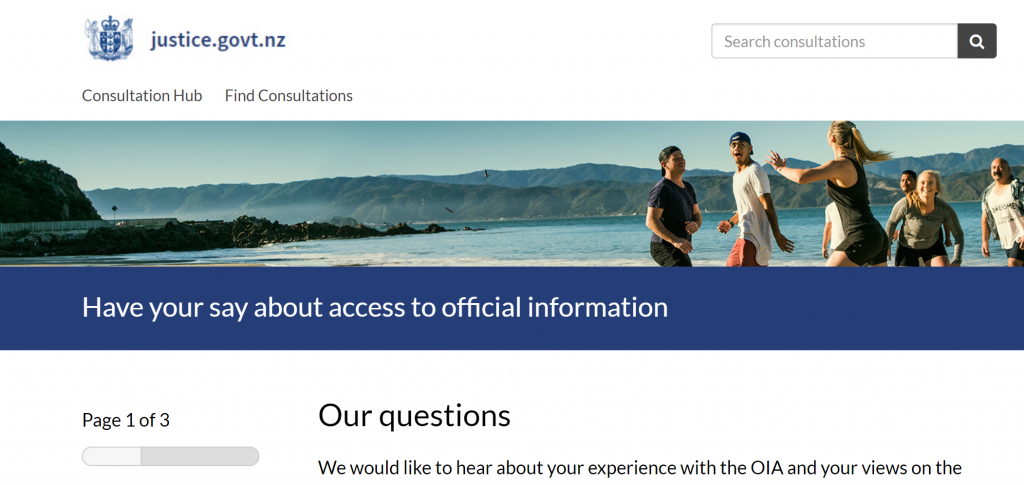The Ministry of Justice may be about to overhaul the Official Information Act, which determines the release of public information. They want your feedback on how the OIA is working – or not.
It’s my experience that not many people even know about the OIA and how it works – that for me is point number one. How can a piece of legislation be effective if it’s not publicised and easily accessible?
In February I documented my attempts to get answers from the Ministry for Social Development about a legal clause that allows some people with disabilities to work and earn more than others.
In that post, I explained the process I’d been through so far – finding out about the clause, getting legal help to apply, being rejected, and eventually using the Official Information Act to try to get some answers.
I submitted my questions – 11 of them – to the Ministry on the 27th of December. Under the OIA, government agencies have 20 working days to provide answers. Because of the holidays and because MSD decided to invoke extensions, it took close to three months to receive a qualitative response. And that still leaves most of my questions unanswered.
Keith Lynch’s editorial described some of the context of the OIA and why it’s important. He announced Stuff’s campaign – Redacted – which will “examine why public information is being kept from you and what can be done to rectify this problem.”

The government has announced it is considering a review of the OIA. Public feedback will help decide if the review is warranted. Anyone can fill in the survey, by 18 April.
I don’t agree with everything in Lynch’s editorial, but I do agree with this:
You may remember this Government pledged to be the “most open, most transparent Government that New Zealand has ever had”.
It’s time to live up to that promise.
We don’t currently have that in all areas of government. I know this, because it took close to three months for MSD to not answer the majority of my 11 questions.
The reason I know about the OIA is because I used to work in government departments and helping answer questions submitted under OIA was part of my job. The other reason is because I’ve worked as a journalist, and the OIA is a vital tool we use to get information from the government that might otherwise be kept out of the public eye.
You can even use the OIA to get all the information any government agency has about you – ie, your personal data, which belongs to you in the first place. I did this a few years ago when I requested my entire file from Work and Income, which also included stating I wanted copies of any and all information written about me by staff, especially communication between the Ministry and the Minister for Social Development. Anything written about you by government personnel at work is requestable under OIA.
When answering OIAs, agencies can choose not to release certain data. They can redact all or large parts of documents, but under the legislation they need a valid reason to do so. For example, if information in a certain document could infringe upon a legal process, or put someone in danger. One reason they use quite often is that the data would take too much time to put together. This is the main explanation MSD gave to me; that the information I wanted would take too much time to collate.
That’s probably true but it also feels obstructive. For journalists using the OIA on a daily basis, I can imagine that frustration increases exponentially.
In any case, it’s important to have you say. If you want government transparency, encourage the Ministry of Justice to do this work.
Just like voting, or voting on law reform, this is a vital part of New Zealand’s democracy.
It takes two minutes to help MOJ decide to do the review. Answer them here.
Your voice makes a difference.

